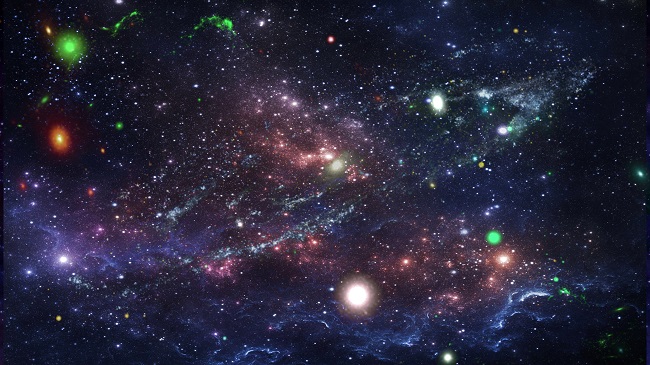Apr 13, 2025
Apr 13, 2025
Our Cosmic Conundrum in the Search for Extraterrestrial Life
What if I told you that in the vast cosmic theatre, amid countless galaxies, nebulas, and infinite stars, we might be the only performance? Would you believe it? Or would you question, as many have, "Where is everyone?" This very inquiry is at the heart of a profound cosmic puzzle known as the Fermi Paradox.

The Fermi Paradox, named after the famed physicist Enrico Fermi, grapples with the contradiction between the high probability of extraterrestrial life and humanity's lack of contact with, or evidence for, such civilizations. To elaborate, consider the vastness of our Universe. It is home to approximately 200 billion galaxies, each one teeming with billions, even trillions of stars. Many of these stars will have planets orbiting them, some of which will be in the "Goldilocks zone," where conditions are just right for life as we know it. So, with such overwhelming numbers, it's statistically likely that intelligent life, possibly even civilizations far advanced than ours, should exist elsewhere.
Yet, despite decades of searching the skies through programs like SETI (Search for Extraterrestrial Intelligence), we have found no trace of extraterrestrial intelligence. No alien radio signals, no cosmic "hello," no grand interstellar welcome party. This puzzling silence from the cosmos is the essence of the Fermi Paradox.
The implications of the Fermi Paradox are indeed profound and can often trigger a philosophical crisis. It pushes us to question the very nature of life itself. Are we truly alone in this vast cosmos, or are we merely not looking in the right place or the right way? Perhaps our technology isn't sophisticated enough, or maybe civilizations tend to self-destruct before they become advanced enough to reach out across the cosmos.
Then there are more haunting possibilities suggested by solutions to the Fermi Paradox. The "Great Filter" hypothesis, for example, proposes that at some point from pre-life to a Type III civilization (a civilization that can harness the energy of an entire galaxy), there's a wall that all, or nearly all, attempts at life hit. There's some stage in that long evolutionary process that is extremely unlikely or impossible for life to get beyond. That stage is The Great Filter. Are we the rare species that passed the filter or is it awaiting us in the future, spelling our doom?
The Fermi Paradox might seem like a purely academic or philosophical concern with little bearing on everyday life. Yet, its implications ripple through many aspects of society. It influences our policies on space exploration, shapes our approaches to environmental stewardship (considering the possibility of the 'Great Filter'), and even impacts our cultural and religious understandings of human life's place in the universe.
Thus, the Fermi Paradox is a mystery that remains at the frontier of our search for cosmic companionship. It invites us to look up at the stars and ponder one of the most profound questions: Are we alone? And if not, why does it seem that way? It's a conundrum that, for now, provides more questions than answers. Yet, in this grand quest to unravel our cosmic solitude, perhaps we'll find not just the secrets of the universe, but also of ourselves.
Image (c) istock.com
12-Aug-2023
More by : P. Mohan Chandran

|
An extremely mind stirring and interesting read. Thanks for providing us with a lot to think about, P. Mohan Chandran |